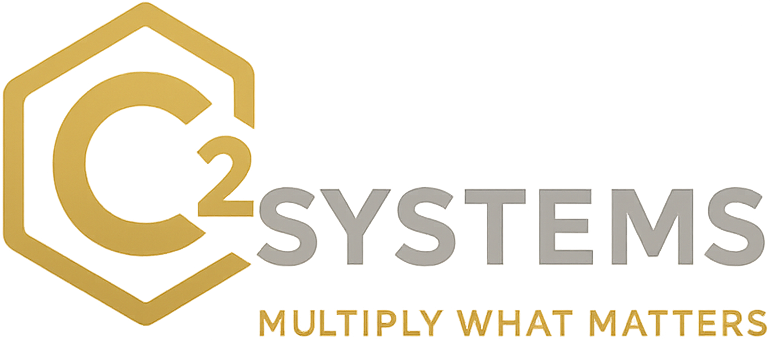Automating Small Engineering Consultancies with AI
Estimated Reading Time: 6 minutes
- Embrace AI for Automation: Streamline routine tasks and enhance productivity.
- Understand Use Cases: Identify how AI can benefit areas such as data analysis and project management.
- Address Challenges: Prepare for potential obstacles like limited expertise and data security.
- Seek Expert Guidance: Collaborate with AI consultants to ensure successful implementation.
- Focus on Reskilling: Prepare your workforce for the AI-driven future.
Table of Contents
- The Shift Towards AI in Small Engineering Consultancies
- Key Benefits of AI Automation for Small Consultancies
- Common Use Cases for AI in Engineering Consultancies
- Challenges Faced by Small Consultancies
- The Role of AI Consulting
- Adoption Trends
- Top AI Consulting Firms
- Practical Takeaways for Recruiters and HR Professionals
- Conclusion
- FAQ
The Shift Towards AI in Small Engineering Consultancies
Historically, advanced technologies like AI were primarily reserved for large firms with considerable resources. However, the advent of cost-effective solutions and specialized consulting services has made it increasingly feasible for smaller consultancies to integrate these technologies into their operations (source), (source). These strategies are vital for small engineering consultancies aiming to leverage data more effectively, improve service delivery, and enhance decision-making capabilities.
Key Benefits of AI Automation for Small Consultancies
The integration of AI into the workflows of small engineering consultancies offers several significant advantages:
- Automated Routine Tasks: AI can take over repetitive tasks such as data entry and analysis, enabling consultants to focus on more complex, high-value projects. This shift not only improves job satisfaction among employees but also allows for greater innovation in problem-solving (source).
- Improved Efficiency: Automation leads to enhanced operational efficiency, a reduction in human error, and quicker turnaround times on projects. In a competitive environment where time is money, these improvements can make a substantial difference to a consultancy’s bottom line (source).
- Data-Driven Decision Making: AI-driven analytics can furnish deeper insights into design and project management, allowing consultancies to offer more valuable services to their clients while differentiating themselves from competitors (source).
Common Use Cases for AI in Engineering Consultancies
The application of AI in small engineering firms can manifest in various use cases, including but not limited to:
- Automated Design Generation: Using AI algorithms to assist in the design process can lead to innovative solutions and optimized processes.
- Predictive Maintenance: Machine learning can analyze data from client infrastructures to anticipate equipment failures, thereby reducing downtime and saving costs.
- Project Management Automation: AI can facilitate resource scheduling, risk assessment, and tracking project progress, enabling teams to stay on top of deliverables efficiently.
- Enhanced Data Analysis: AI can streamline feasibility studies and safety assessments, crucial in the engineering sector.
- Proposal Generation: Automating bid estimation and proposal creation drastically reduces turnaround time for client requests (source), (source), (source).
Challenges Faced by Small Consultancies
Despite the benefits, implementing AI technology is not without its challenges. Small consultancies may encounter several roadblocks, including:
- Limited In-House Expertise: Many small firms lack the technical resources needed to implement AI effectively (source).
- Data Security Concerns: Ensuring compliance with industry regulations and protecting sensitive data is crucial when adopting AI tools (source).
- Identifying Valuable AI Applications: Without external guidance, it can be challenging for firms to determine where AI can deliver the most significant benefits (source), (source).
- Organizational Changes: Employees may resist adapting to new AI tools, and upskilling them becomes necessary for successful integration (source).
The Role of AI Consulting
This is where AI consultants come into play. They can help small consultancies navigate the complexities of AI integration by:
- Assessment of Operations: Identifying high-impact areas for AI application that can drive efficiency and flexibility (source), (source).
- Tailored Recommendations: Suggesting and implementing AI tools suited to the consultancy’s unique workflows and client requirements, ensuring that technology aligns with business goals (source), (source).
- Training and Support: Providing training to staff ensures the adoption of AI technologies is smooth and effective.
- Change Management Guidance: Consultants can offer strategic insights into organizational adaptation as firms begin to implement AI tools (source).
Adoption Trends
Recent surveys indicate an optimistic outlook regarding AI adoption among small firms. Approximately 79% of small businesses showcase interest in utilizing AI technologies, and one in four has already begun to use AI for enhancing competitiveness and fostering business expansion (source).
Top AI Consulting Firms
Several AI consulting firms specialize in aiding small engineering consultancies to adopt and scale AI-driven solutions:
- Companies like Redblink and LTIMindtree offer tailored services aimed at helping small businesses effectively integrate AI into their operations. Their expertise ensures that small firms perceive the maximum returns from their AI investments. More details can be found here: Redblink, Tenupsoft, and LTIMindtree.
Practical Takeaways for Recruiters and HR Professionals
- Focus on Reskilling: As AI begins to transform roles within consultancies, HR professionals should prioritize reskilling initiatives, ensuring employees are equipped to work alongside these new technologies.
- Emphasize Change Management: Effective AI implementation hinges on sound organizational change management practices. Develop strategies that prepare teams for the technological shift.
- Leverage AI Tools for Talent Acquisition: Consider how AI can streamline recruitment processes. Tools for candidate screening and interview scheduling can free up significant time.
- Stay Informed: Keeping abreast of emerging AI technologies will enable you to make informed decisions about when and how to implement these technologies within your consultancy.
- Consult an Expert: Engage with an AI consultant who can help assess your consultancy’s unique needs and guide you in selecting the right tools for your specific circumstances.
Conclusion
AI is poised to revolutionize the operations of small engineering consultancies, driving efficiency and enabling these firms to compete effectively with larger counterparts. By automating routine tasks, enhancing analytical capabilities, and supporting complex engineering projects, AI can lead to remarkable benefits. However, the path to successful implementation often requires the support and guidance of external AI consulting services.
At C2 Systems, we understand these challenges and are equipped to help small consultancies embrace AI solutions that align with their strategic objectives. Our consulting services are tailored to provide the necessary expertise and support for your firm to navigate this transformative journey.
Ready to discover how AI can streamline your engineering consultancy? Contact us today to explore our services or learn more about how we can help you harness the power of AI in your operations!
FAQ
Q: How can AI specifically benefit small engineering consultancies?
A: AI can automate routine tasks, enhance data analysis, and improve decision-making capabilities, allowing consultancies to operate more efficiently and effectively.
Q: What challenges might small firms face when implementing AI?
A: Challenges include limited expertise, data security concerns, and resistance to organizational change among employees.
Q: Should small consultancies hire AI consultants?
A: Yes, AI consultants can provide valuable insights and support to help firms integrate AI solutions effectively.
Q: Are there specific AI tools ideal for small engineering firms?
A: There are various AI tools tailored for automation, data analysis, and project management that can benefit small engineering consultancies.
Q: How important is reskilling in the context of AI?
A: Reskilling is crucial as AI changes job roles; training staff will ensure they can work effectively alongside new technologies.


